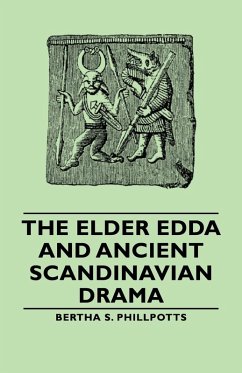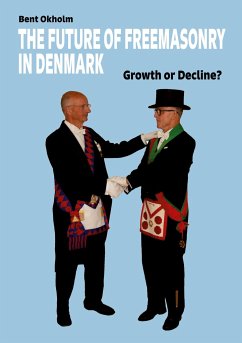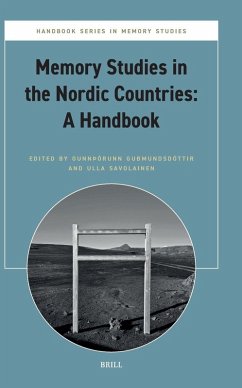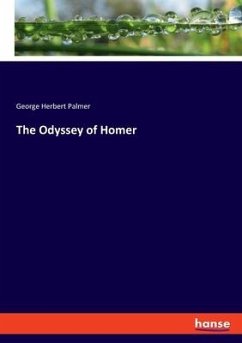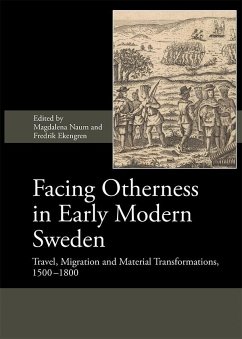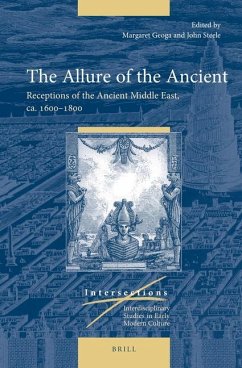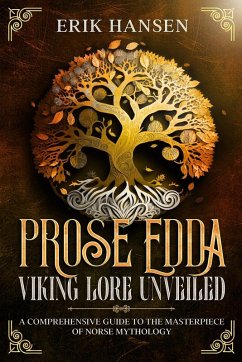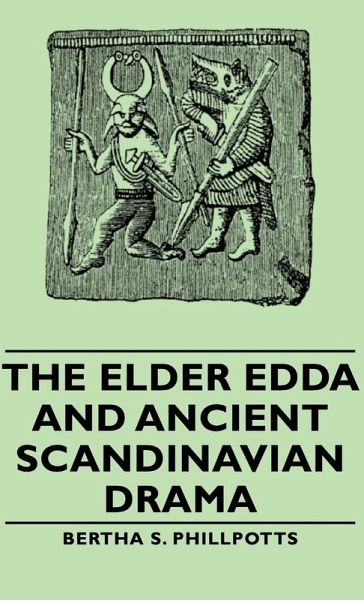
The Elder Edda and Ancient Scandinavian Drama
Versandkostenfrei!
Versandfertig in 1-2 Wochen
40,99 €
inkl. MwSt.
Weitere Ausgaben:

PAYBACK Punkte
20 °P sammeln!
THE ELDER EDDA AND ANCIENT SCANDINAVIAN DRAMA. Originally published in 1920. PREFACE: THIS book was begun in the spring of 1914, and only two chapters were unwritten in March 1916. In adding these two chapters in 1920 I have endeavoured to bring the rest of the book up to date, but the occupations of the intervening years left little time to keep abreast of the advances of scholarship, and the endeavour has not been wholly successful. My task has not been lightened by the loss of a note-book and some pages of the MS. through causes connected with the war, and I am conscious that there is much ...
THE ELDER EDDA AND ANCIENT SCANDINAVIAN DRAMA. Originally published in 1920. PREFACE: THIS book was begun in the spring of 1914, and only two chapters were unwritten in March 1916. In adding these two chapters in 1920 I have endeavoured to bring the rest of the book up to date, but the occupations of the intervening years left little time to keep abreast of the advances of scholarship, and the endeavour has not been wholly successful. My task has not been lightened by the loss of a note-book and some pages of the MS. through causes connected with the war, and I am conscious that there is much to apologise for. But it seemed better to publish the book as it is, with all its imperfections, than to wait for the uncertain hour when I could attempt an elaborate revision and expansion. My aim is simply to place before scholars a theory of the dramatic origin of the older Eddie poems. I shall be satisfied if I have made clear the grounds which have forced me to formulate the theory: should there be any truth in it, others, better fitted than I, will work it out in all its many bearings on history, religion and literature. The dedication intimates that this book is my gift to Somer villc College, In a more fundamental sense it is the gift of Somerville College to me. It is the product of my tenure of the Lady Carlisle Research Fellowship, and the central idea of the book occurred to me while I was trying to present a rational picture of early Scandinavian literature to the College Literary and Philosophical Society. The idea struck root in favourable soil Miss Pope, Tutor in Modern Languages at Somerville, was working at a theory of the genesis of the Old French epic: Pro fessor Gilbert Murray, Vice-President of the College, was always ready to stimulate and illumine discussion on the relation of epic and drama: Miss Spens of Lady Margaret Hall was writing her book on Shakespeare's indebtedness to folk-drama, Moreover I think that the air of Oxford was friendly to the growth of a theory like mine, and gave me courage to act on the belief that a clear understanding of the form of primitive Scandinavian literature was an essential preliminary to an understanding of primitive Scandinavian history. It was only after I had written the first part of the book an attempt to solve a literary problem on purely literary lines that I was able to realise the significance of the heroic poems of the Edda as a source for Scandinavian history and religion from the sixth century onwards. Since the theories put forward have a direct bearing on the problem of Greek tragedy, and may also be of interest to mediaevalists, I have assumed that some of my readers may be unacquainted with Old Norse, and have accordingly given my quotations in English, adding the original in the notes wherever there is any doubt as to the reading. I had originally planned to give translations of the more important poems in an appendix, but joyfully abandoned the project on finding that there is some hope that the poet and scholar who has made Greek tragedy live in English dress may do a similar service to the heroic poems of the Edda. In the meantime readers may be referred to the trans lations in Vigfiisson and Powell's Corpus Poetmim Borc



